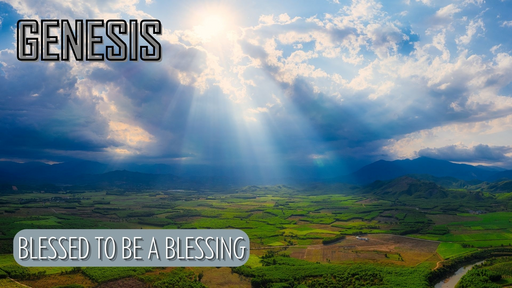Genesis 13:1-18

Notes
Transcript
Sermon Tone Analysis
A
D
F
J
S
Emotion
A
C
T
Language
O
C
E
A
E
Social
Background
Last week we saw God’s first interactions with Abram, the patriarch of the Jewish and Christian faith. By faith, he left his father’s household and went into the land of Canaan, the land that God promised to Abram’s descendants. The narrative actually ends with 13:1, with Abram leaving Egypt after having lied to Pharaoh about his wife Sarai being his sister.
Gen. 13:1-4
As a reminder, Abram had traveled south after God had told him that the land he was wandering in would belong to his descendants. Instead of staying in the land, he continued into Egypt, presumably because there was a famine. After Abram deceived Pharaoh, Pharaoh gave much wealth to Abram.
We see Abram now leaving Egypt with all that wealth, plus everything he came into Egypt with.
TRAVELS
TRAVELS
Abram traveled back north through the wilderness (Negev), back up to Bethel, where he had built an altar in the last chapter.
Abram once again called upon the name of the Lord (Psa. 116:17; 1 Cor. 1:2).
As will be seen in future studies, this site is very important to Jewish heritage.
We are to call upon the name of the LORD for salvation.
We are to call upon the name of the LORD for salvation.
Rom. 10:12-14
Gen. 13:5-13
Abram had brought his nephew Lot with him, for Abram’s father Terah had brought him as well. Apparently Abram felt it was his duty to care for his nephew since his father (Haran) and grandfather were dead.
Lot had also accumulated wealth and herds, and the combination of the 2 created logistical problems: not enough space, and not enough pasture land for the animals.
Because of this issue, there arose contention between Abram’s servants and Lot’s servants.
Abram, desiring peace between him and his nephew, offered to have them split, and deferred to Lot the choice.
Lot saw that there was an abundance of green land east of the Jordan river, in the area where Sodom and Gomorrah used to exist.
Notice that what Lot saw appealed to him (1 John 2:15-16).
Egypt, often thought of as a desert, was well-known for its agriculture around the Nile river. That’s why Abram traveled there during the famine.
Side note: this “Zoar” most likely referred to an area in southern Egypt known as Zoan.
Lot chose to go east, and went into the valley where Sodom was. As the text says, it was known to them that the men of Sodom were wicked and rebellious against God. We’ll remember this for later.
Abram stayed within the land of Canaan, where God had told him to go.
Gen. 13:14-18
At this point, Abram is now obedient to the original command that God had given him, which was to separate from his family and go to the land of promise. God once again affirms His promise to Abram while he is standing in the land.
God also affirms his promise that Abram would have offspring, and his descendants would be innumerable (1 Kings 4:20).
God will always remain faithful to keep His promises.
God will always remain faithful to keep His promises.
Israel, unfortunately did not stay faithful to God, and received the consequences of their rebellion (Isa. 48:18-19).
We who are children of Abraham are so by faith (Rom. 4:16; Gal. 3:6-14).
We are included in the descendants which are innumerable (Rev. 7:9).
Abram went on to Hebron, another important location for the Jews, and built another altar there.
APPLICATION
APPLICATION
We are to call upon the name of the LORD for salvation.
God will always remain faithful to keep His promises.
Next week, we will continue the story of Abram's sojourning.
